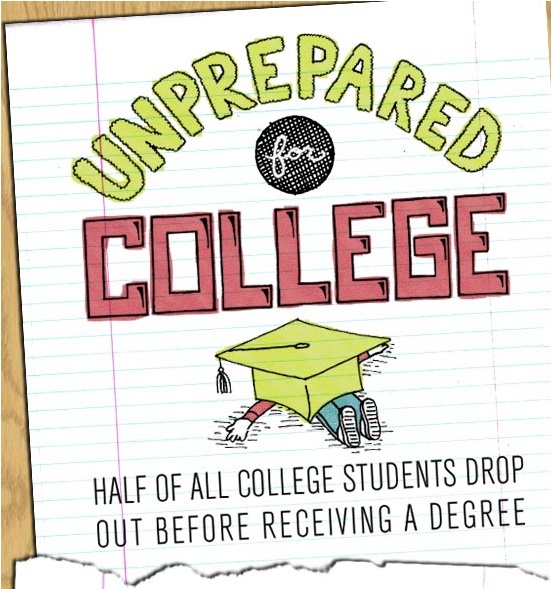 Getting ready for college or post-secondary school is a huge milestone in a student’s life and is the first real step towards adulthood. As a college student, you will be on your own immersed in schooling that will become your job for the next two to four years of your life. For the first time, rewards will be based entirely on what you produce and the time you are willing to commit to becoming successful. College really is a time that allows you to shape your future career, so it’s important to start preparing at a young age rather than at the last minute. Here are a list of ways to help start preparing early for college in order to ensure a successful experience that will prepare you for your career:
Getting ready for college or post-secondary school is a huge milestone in a student’s life and is the first real step towards adulthood. As a college student, you will be on your own immersed in schooling that will become your job for the next two to four years of your life. For the first time, rewards will be based entirely on what you produce and the time you are willing to commit to becoming successful. College really is a time that allows you to shape your future career, so it’s important to start preparing at a young age rather than at the last minute. Here are a list of ways to help start preparing early for college in order to ensure a successful experience that will prepare you for your career:
- Meet with your high-school counselor by the end of your sophomore year. This is a person you want on your team for the next few years you are in high school. Your counselor will ask what you envision doing beyond high school, your goals and vision for your future career. He or she will help you draw out a plan to reach those goals. If you wait until senior year it could already be too late to get particular requirements you may need to attend the school of your dreams.
- Research college degree requirements. Throughout high school, you may have the opportunity to get some college credit out of the way without even knowing it. At some universities, four years of a foreign language in high school will be enough to satisfy language requirements for your degree. Also, AP and honors classes can sometimes fulfill certain degree requirements, which will be very beneficial to you once you reach college so those classes will already be out of the way.
- Develop a high school schedule with your counselor. Prepare, prepare, prepare. One of the easiest ways to have a smooth transition from high school to college is to prepare. Work with your high school counselor ahead of time to pinpoint what school courses you need to take and pass to fit those college subjects the best. Sift through options of high school electives that match with the specific degree you will be going for.
- Get involved with extracurricular activities. Universities want to see students whom will involve themselves in campus life and have shown their dedication in the past. It is a great idea to get involved with clubs, volunteer work, or even sporting teams to prove to universities that you are able to manage your time with other events and work aside from homework.
- Begin preparing for and completing the PSAT/ACT/SAT. As annoying as studying for a standardized test can be, it really is important to do well on these tests in order to get into the school of your choice. Many high schools have you take these in your junior or senior year, and all universities require one of these standardized tests in order to be considered for admission. It is important to note that some college degrees require a minimum score on these tests in order to be accepted into their program.
______________________________
Today’s guest post is written by Trae Lewis, a recent graduate of University of Colorado and a staff writer for CollegeFocus, a website dedicated to helping students deal with the challenges of college, including housing, finance, style, health, relationships, and transferring from a community college to a four-year university. You can follow CollegeFocus on Twitter at @CollegeFocus101 and Facebook at www.fb.com/collegefocus.








